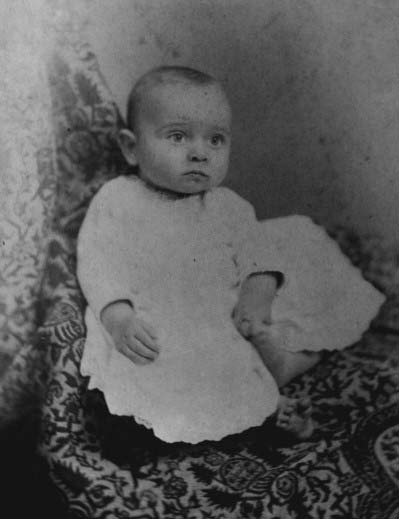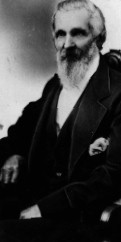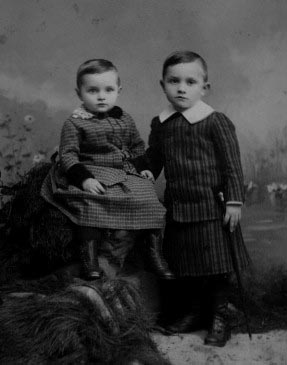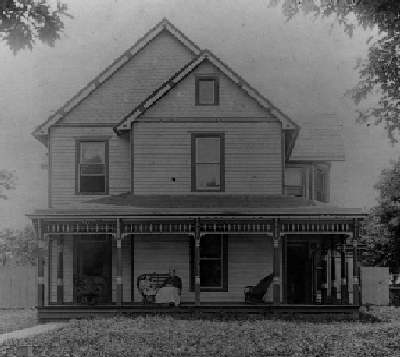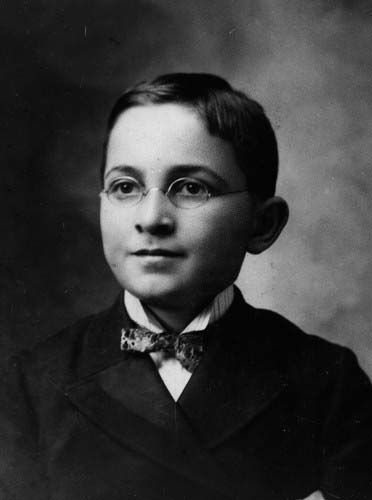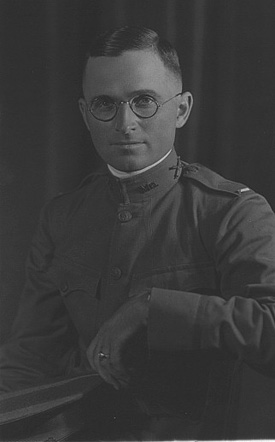When Harry S. Truman was born, May 8, 1884, his father, John Truman, marked the day by nailing a mule shoe above the doorway and by planting a new pine seedling to grow with his firstborn son.
While the gesture to provide good luck lasted in the long run for the 33rd president, his early years were plagued with accidents, poor eyesight, and a nearly paralyzing disease.
Harry, however, grew up surrounded by loving, strong-willed, and doting parents, grandparents and other relatives. These strong relationships enabled him to accept himself no matter what external problems he would face.
One such relative who greatly influenced his early years was Grandfather Young. Solomon Young was openly taken with his little grandson and frankly bragged about what an amazing little fellow he was.
Vivian was Harry's younger brother by two years. He had long curls, which his mother refused to cut. Evidently, the long curls bothered Grandfather Young to the point he decided to take control of the situation.
One day, he had Harry help him haul Vivian--highchair and all--out onto the south porch where Grandfather Young quickly gave Vivian a short haircut. Harry's mother was furious, but said nothing out of respect for her father.
A few days later, Harry decided to experiment with his own hair and comb it a different way. He pulled a big chair up close to a mirror in order to see the back of his head. He kept leaning in the chair until he fell over backwards, breaking his collarbone--his first, but not his last broken bone.
Harry was particularly close to his mother, a college educated and outspoken woman. She valued art, reading, and music and saw to it that Harry had the same interests. She taught Harry to read from the large print Bible before he was five, but she noticed he had a hard time reading newsprint and distinguishing objects coming down the road.
Then came the Fourth of July celebration in Grandview where the climax was a series of colorful rockets bursting in the air. Harry jumped at the exploding sounds but could not see the shiny showers of the fireworks.
At that moment, Harry's mother decided to take him to an eye doctor. Her husband was away on business, so she hitched up the team to the wagon and drove her son 15 miles to Kansas City to see Dr. Thompson. He diagnosed the eye problem as myopia, or in layman terms, flat eyeballs. Harry was promptly fitted with very thick, expensive and fragile glasses.
Glasses were a rare sight on children in those days. In addition to coping with being different in looks, Harry was ordered by the doctor to avoid sports and rough games to keep the glasses from breaking and injuring his eyes.
According to Henry Chiles, a boyhood friend, the neighborhood boys rarely kidded Harry about his glasses or non-participation in sports. They just had too much respect for him.
But Harry did not just sit around reading and playing the piano. He marched with the neighborhood Junior Militia, which was organized for fun by the boys during the Spanish-American War as a .22 rifle company. The group elected a captain, marched, and camped out in the woods two blocks north of his home.
The Truman family had moved to Independence when Harry was ready for schooling. His first year was a good experience, but in January 1894, during his second year, Harry and Vivian developed a severe case of diphtheria. Their little sister, Mary Jane, was quickly sent back to the Grandview farm to stay with her grandparents to prevent her from contracting the disease.
Vivian was well in a short time, but Harry had a difficult time recovering. His legs, arms, and throat were paralyzed for months.
According to Mr. Truman's account, there was no antitoxin in those days so he was given ipecac and whiskey, both of which he would hate to smell from then on. He was so weak and thin he had to be pushed around in a baby carriage. After nearly six months, he finally regained his strength and attended summer classes to catch up in school and he even skipped a grade.
The Truman home in Independence became the center of childhood activity for the neighborhood because of Vivian's rough cowboy games, Harry's wit and piano playing, Mrs. Truman's acceptance of children, and the home's extensive animal farm.
The Truman boys had a little wagon pulled by goats, and all the neighborhood boys begged for rides. There were calves, cows, ponies, and pigeons.
One day while playing in this well-stocked yard, Harry slammed the cellar door on his foot, cutting off the end of the big toe on his left foot. Again Harry's mother came to the rescue, holding the ragged end of the toe in place until Dr. Tom Twyman could come. The doctor put some iodoform on the injured toe, wrapped it up, and the toe stayed in place and healed.
Although the accidents and diseases passed, the eyesight problem continued to alter Harry's choices. His dream for years as he had marched with the Junior Militia, read countless biographies, and studied Caesar's Gallic wars, was to attend West Point or Annapolis.
Fielding Houchens and Harry Truman would go out twice weekly to take special courses in history and geography to prepare for appointment to one of these academies. But after all the studying, Harry was barred from entrance because of his eyesight.
Without funds for schooling, Harry tried various jobs and then concentrated once again on the family farm. Years later, the same army that had rejected his appointment to West Point would eagerly accept him as commanding officer of Battery D during World War I.
By Kathleen Vest
